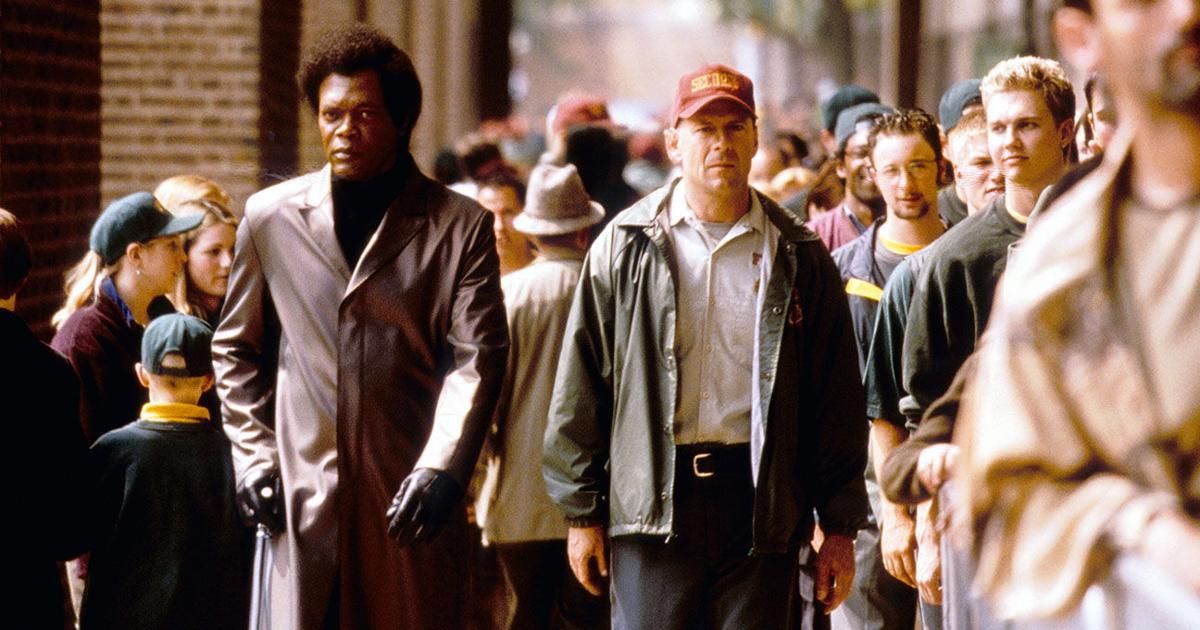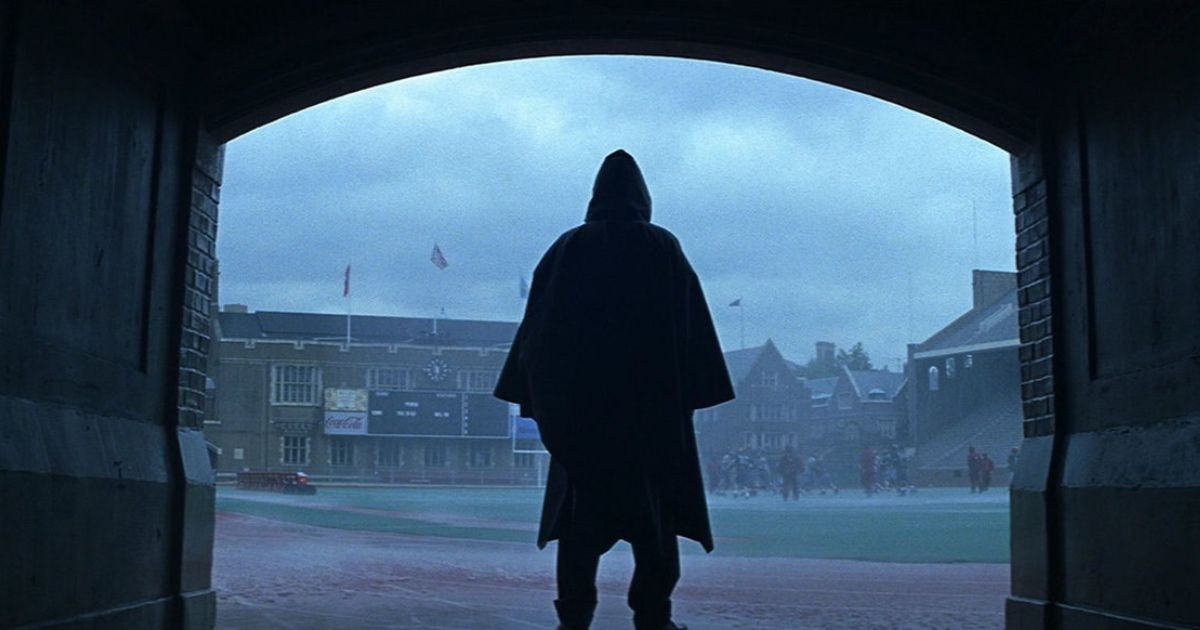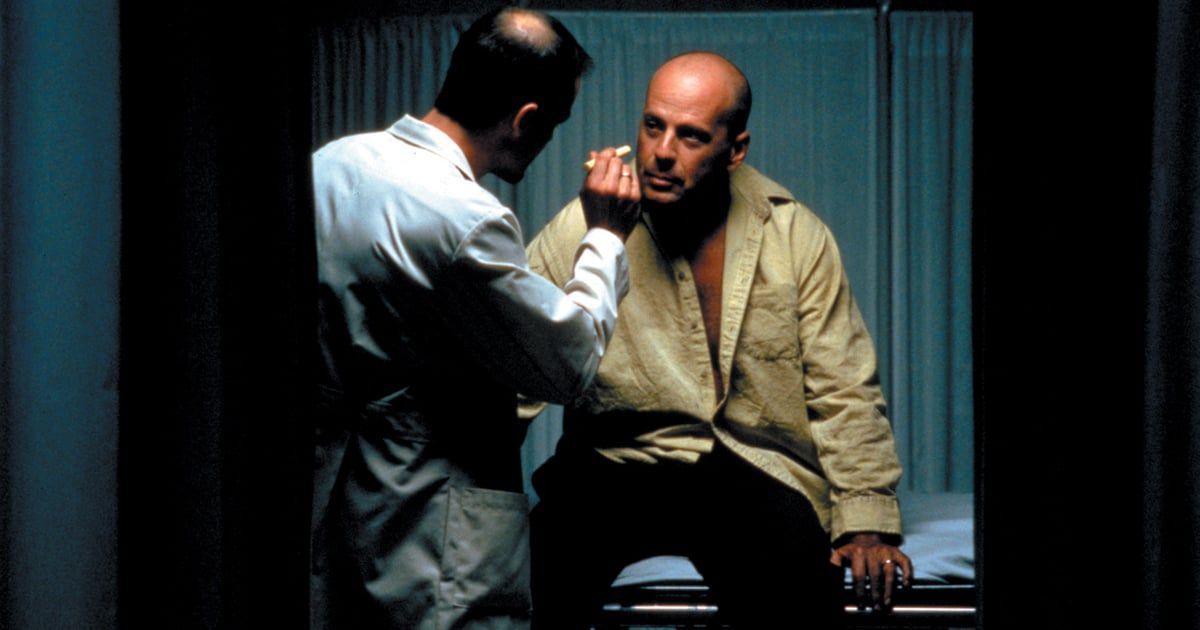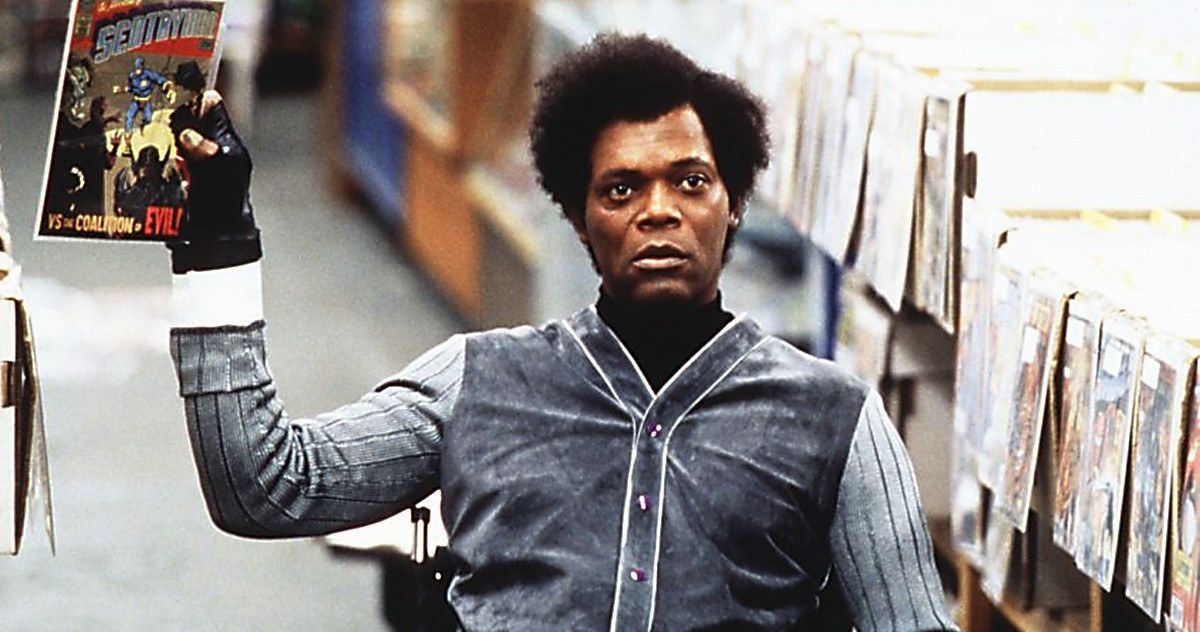Released in 2000, Unbreakable was filmmaker M. Night Shyamalan’s follow-up to his Oscar-nominated breakout The Sixth Sense, and sought to ground the superhero genre in Shyamalan’s trademark thriller styling. It follows David Dunn (Bruce Willis), the lone survivor of a train crash, who comes to realize that he may be the world’s first living superhero. While the concept of a realistic superhero wasn’t new, Shyamalan approached the subject with a slower, more thoughtful pace that was well-reviewed, with Roger Ebert stating, “most of the action takes place during conversations.”
Shyamalan himself has attempted to capitalize on Unbreakable’s success, with its follow-ups Split and Glass, but nothing in his filmography before or since has topped the original’s directorial effort, engrossing lead character, and hair-tingling finale.
His Entire Style, Encapsulated
Though it is one of his first major features, Unbreakable serves as an example of all of M. Night Shyamalan’s popular stylistic and structural trademarks. The filmmaker later admitted, "I was being very aggressive about the way we were making the movie". Even setting aside the requisite twist at the end of the film, Unbreakable is full of connective threads that link to Shyamalan’s past and future work, as well as to his own personal history.
M. Night Shyamalan’s filmography, while often fantastical, always plants itself firmly in a sense of “reality”. This approach towards realism is at its most prominent in Unbreakable, where realism is both the setting and the antagonist of the film. Whereas Shyamalan’s other films like The Visit lean into realism to heighten their thrills, Unbreakable weaponizes the mundane to heighten its storytelling impact. In The Sixth Sense, Shyamalan aims to depict ghosts realistically, with little translucence and full gore, but he also uses the viewpoint of his child-age lead to incorporate more nightmare-like, subjective visuals. Unbreakable fully grounds itself in a naturalistic, mundane world, matched by lower-key lighting and an unappetizing blue/green color palette. This visual aesthetic gives Shyamalan a contrasting appearance against the film’s superheroic feats.
Shyamalan almost always pops up as an actor in his own movies, and Unbreakable features his best cameo. Here, Shyamalan does not give himself too important of a role, like a writer who is supposed to save the world in Lady in the Water, but he does take advantage of the way he stands out as an actor. As Dunn is exploring his power of intuition while working security at a sports stadium, he clocks Shyamalan’s character as a drug dealer. When Dunn confronts the dealer, he realizes the dealer doesn’t have the package he saw in a brief vision, showing that Dunn’s intuition only sees crimes occurring in the future, not the past. It’s a vital piece of storytelling that uses Shylamalan’s presence as a fake-out, where his character is much less important than the information learned from him. In this way, it’s his most useful cameo, one that actually services the story.
Parenthood is present throughout all of Shyamalan’s films, even his first feature Praying with Anger. Just as in that film, where an estranged relationship between a father and son is shown to be one actually rooted in love, Unbreakable builds its most intense drama between David and his son, Joseph. David is unsure of himself, but Joseph believes in his dad’s superpowers, emboldened by a mysterious comic collector named Mr. Glass (Samuel L. Jackson). David and Joseph personify either side of the movie’s central ideological conflict, while also highlighting Shyamalan’s knack for engaging parent/child relationships.
Shyamalan’s Best Character
David Dunn, played by Bruce Willis, is not a conventional hero. In his first scene, which takes place prior to the train crash, David flirts with another passenger, before it’s revealed that he’s married. His relationships with his wife (Robin Wright) and son (Spencer Treat Clark) are heavily strained, presumably due to his infidelity. He is still bitter over an injury that ended his football career decades earlier. He does not have a fortune, or noble journalistic intentions. And yet, he is the sole survivor of a deadly train crash. There is a visible struggle within Dunn as he grapples with the idea of having superpowers while simultaneously feeling unworthy of them.
Whereas The Sixth Sense connected viewers with its lead out of fear, Unbreakable has viewers empathize with David Dunn through a less visceral, but more rewarding emotion: doubt. David’s own doubt forces the viewer to doubt the validity of his powers as well. When David’s intuition works, the viewer believes it, and so does he. This creates a deeper sense of connection between the audience and the film’s lead, where even the reality of the situation is defined by the audience and character's shared acceptance of it. This type of character arc, and internalized doubt, also appears in Shyamalan films like Signs, with a disillusioned pastor as its lead. But David Dunn’s arc comes to the most satisfying conclusion, as he embraces his powers to rescue a family that’s been home-invaded, and tearfully shares his secret with Joseph.
His Greatest Ending
A lot is made out of Shyalaman’s trademark twists in his movies, which can lead viewers to overlook the rest of the movie’s runtime. Unbreakable avoids this trap by ending the movie as soon as possible after its twist, leaving its maximum impact.
When David returns to the comic shop owned by Samuel L. Jackson’s Mr. Glass, he discovers that Glass caused the Eastrail 177 crash. Mr. Glass proclaims himself to be Dunn’s archenemy, and identifies himself as the villain of the story. But instead of a climactic super-powered showdown, Dunn walks away, and a title card states that Glass was arrested and institutionalized. It is a harsh final contrast between superhero stories and reality, a contrast the entire movie builds itself on. Avoiding a drawn-out finale with a mediocre punch-out is the best twist of all.




